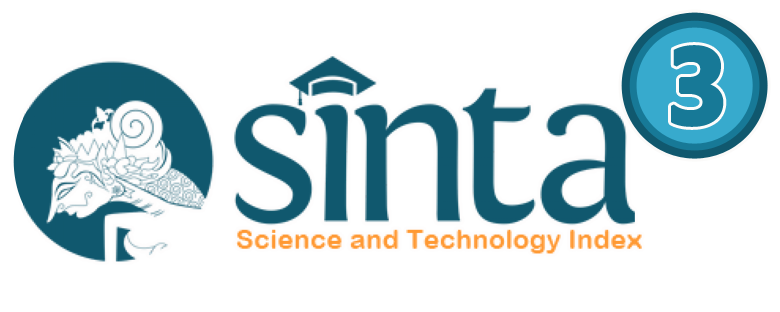The Influence of Parental Prosocial Behavior on Children's Participation in Volunteer Activities
DOI:
https://doi.org/10.18326/ijip.v6i1.1699Keywords:
Prosocial Behavior, Volunteer Participation, SocializationAbstract
Modern society is assumed to be pragmatic, selfish, and individualistic. However, this assumption seems to be refuted by the results of several surveys conducted in Indonesia, which show a trend of increasing prosocial behavior and volunteerism in society. It is interesting to study prosocial behavior in society, especially among students, because students are bound by the tri dharma of higher education, which includes the principles of community service. This research does not deny the role of socialization in individual behavior. Therefore, this study aims to examine the influence of parents' prosocial behavior as the primary socialization agent on the participation of child (student) volunteers. This research uses a correlation study method with the moderating variables socialization and children's prosocial behavior, which are then tested as the dependent variable with socialization as the moderating variable. The population in this study were all university students in East Java. The sample in this study was taken using a purposive sampling technique. The study sample consisted of 100 people, with details of 50 from Surabaya and 50 from Sidoarjo. This research uses several SPSS tests such as Pearson correlation, MRA regression test, t-test, and others. This study's results indicate a small influence between parents' prosocial behavior and child volunteer participation. The moderating variables of children's socialization and prosocial behavior have strengthened the influence between variables.
References
E. Lisdiyono and A. Noor, “Regulatory Evolution: Addressing Challenges and Enhancing Legal Certainty in Indonesian Donation-Based Crowdfunding Services,” International Journal of Religion, vol. 5, no. 4, pp. 143–149, 2024.
N. W. Islami, L. Yuwanto, and E. Sudibyo, “Strategi Peningkatan Kesadaran Masyarakat Dalam Penerapan Tatanan Kebiasaan Baru Di Masa Pandemi Covid-19 Di Kabupaten Malang,” Karta Rahardja: Jurnal Pembangunan Dan Inovasi, vol. 3, no. 1, pp. 34–44, 2021.
H. K. Rahmat, S. Pernanda, C. Casmini, A. Budiarto, S. Pratiwi, and M. K. Anwar, “Urgensi Altruisme dan Hardiness pada Relawan Penanggulangan Bencana Alam: Sebuah Studi Kepustakaan [The Urgency of Altruism and Resilience in Natural Disaster Management Volunteers: A Literature Study],” Acta Islamica Counsenesia: Counselling Research and Applications, vol. 1, no. 1, pp. 45–58, 2021.
S. Sukamti, S. Suroso, and S. Saragih, “Hubungan religiusitas dan motivasi menjadi relawan dengan perilaku prososial anglican community center batam,” Fenomena, vol. 28, no. 2, 2019.
F. L. ZAHARA and Z. Muttaqin, “ALTRUISME PADA ‘GURU NGABDI’ DI PONDOK PESANTREN WS JAWA TIMUR DALAM PERSPEKTIF ISLAM,” 2023.
B. Takwin, “Catatan Editor: Mengembangkan penelitian tentang tingkah laku prososial dan altruisme,” Jurnal Psikologi Sosial, vol. 19, no. 1, pp. 3–6, 2021.
C. Chow, S. K. Goh, C. S. G. Tan, H. K. Wu, and R. Shahdadpuri, “Enhancing frontline workforce volunteerism through exploration of motivations and impact during the COVID-19 pandemic,” International Journal of Disaster Risk Reduction, vol. 66, p. 102605, 2021.
N. P. Kasrani, “Makna Kerja dalam Keberlanjutan Relawan pada Organisasi Non-Profit: Studi tentang Tagana Kota Depok, Jawa Barat,” Kajian Sosiologi Kontemporer, vol. 3, no. 2, pp. 161–185, 2021.
R. D. Putnam, Bowling alone: The collapse and revival of American community. Simon and schuster, 2000.
A. Turk, S. Tierney, G. Wong, J. Todd, H. J. Chatterjee, and K. R. Mahtani, “Self-growth, wellbeing and volunteering-Implications for social prescribing: A qualitative study,” SSM-Qualitative Research in Health, vol. 2, p. 100061, 2022.
D. Prasetiyo, “Analisis Fatwa MUI NO 23 Tahun 2020 Tentang Pemanfaatan Harta Zakat Infak Dan Shadaqah Untuk Penanggulangan Wabah Covid 19 Dan Dampaknya Terhadap Petugas Medis Covid 19 Sebagai Asnaf Zakat,” 2022.
A. Harijoko, D. Puspitasari, I. Prabaningrum, K. P. Prastika, and N. F. Wijayanti, Manajemen penanggulangan bencana dan pengurangan risiko bencana di Indonesia. UGM PRESS, 2021.
F. Nurul, “INTEGRASI PAYMENT GATEWAY UNTUK DONASI MENGGUNAKAN FRAMEWORK FLUTTER (STUDI KASUS DONASI HMTIF UNPAS),” 2022.
T. Seftiani, A. J. Rica, and S. E. Agustina, “Partisipasi Pemuda Dalam Pengembangan Komunitas Senyum Anak Nusantara Melalui Kegiatan Pengabdian Masyarakat,” Empowerment: Jurnal Pengabdian Masyarakat, vol. 5, no. 03, pp. 308–315, 2022.
M. M. Adha, E. P. Ulpa, J. M. Johnstone, and B. L. Cook, “Pendidikan moral pada aktivitas kesukarelaan warga negara muda (Koherensi Sikap Kepedulian dan Kerjasama Individu),” Journal of Moral and Civic Education, vol. 3, no. 1, pp. 28–37, 2019.
B. A. Taylor, L. A. LeBlanc, and M. R. Nosik, “Compassionate care in behavior analytic treatment: Can outcomes be enhanced by attending to relationships with caregivers?,” Behavior Analysis in Practice, vol. 12, no. 3, pp. 654–666, 2019.
M. Ottoni-Wilhelm, L. Vesterlund, and H. Xie, “Why do people give? Testing pure and impure altruism,” American Economic Review, vol. 107, no. 11, pp. 3617–3633, 2017.
S. A. Siregar, M. T. Siagian, M. E. J. Sitorus, R. K. Richadi, J. A. Pardede, and L. Hakim, “Faktor Yang Mempengaruhi Partisipasi Masyarakat Dalam Pencegahan COVID-19 di Kelurahan Pasar Gunungtua Kabupaten Padang Lawas Utara,” PREPOTIF: Jurnal Kesehatan Masyarakat, vol. 6, no. 1, pp. 80–97, 2022.
V. B. Toron, PENDIDIKAN KARAKTER. CV. Ruang Tentor, 2024.
A. O. Tenri Awaru, “Sosiologi Keluarga,” 2021.
A. F. Asyha, A. Ikhlas, T. Rukhmana, S. Prastawa, A. R. Nugraha, and J. W. Sitopu, “Analisis Pengaruh Lingkungan Keluarga dalam membentuk Karakter Siswa,” Journal on Education, vol. 6, no. 4, pp. 18372–18380, 2024.
E. Clara and A. A. D. Wardani, Sosiologi keluarga. Unj Press, 2020.
K. Malo and M. E. Lojam, “PENGARUH KELUARGA DALAM MEMBENTUK KARAKTER ANAK,” Triwikrama: Jurnal Ilmu Sosial, vol. 3, no. 1, pp. 122–132, 2024.
J. P. G. A. U. Dini, “POLA ASUH ORANGTUA DALAM MENGEMBANGKAN PERILAKU PROSOSIAL ANAK TK DI KABUPATEN BENER MERIAH,” Jurnal Ilmiah Mahasiswa Pendidikan Guru Anak Usia Dini, vol. 5, no. 1, pp. 23–35.
S. R. Wahdani, “Hubungan Perilaku Altruisme dan Dukungan Sosial Orang Tua dengan Psychological Well-Being pada Siswa SMK NEGERI 1 Percut Sei Tuan Medan,” 2022.
N. Nurfirdaus and A. Sutisna, “Lingkungan Sekolah dalam Membentuk Perilaku Sosial Siswa,” Naturalistic: Jurnal Kajian dan Penelitian Pendidikan dan Pembelajaran, vol. 5, no. 2b, pp. 895–902, 2021.
S. E. Zaky, “HUBUNGAN ANTARA DUKUNGAN SOSIAL TEMAN SEBAYA DENGAN EFIKASI DIRI PADA MAHASISWA AKHIR,” 2023.
M. R. T. De Guzman and G. Carlo, “Family, peer, and acculturative correlates of prosocial development among Latinos,” Great Plains Research, pp. 185–202, 2004.
E. S. White, “Parent values, civic participation, and children’s volunteering,” Children and Youth Services Review, vol. 127, p. 106115, 2021.
C. A. Smith and S. B. Stern, “Delinquency and antisocial behavior: A review of family processes and intervention research,” Social service review, vol. 71, no. 3, pp. 382–420, 1997.
G. Ritzer and D. J. Goodman, “Teori Sosiologi; Dari Teori Sosiologi Klasik sampai Teori Sosial Postmodern,” Yogyakarta: Kreasi Wacana, 2012.
M. M. Poloma, “Sosiologi Kontemporer, Jakarta: PT,” Raja Grafindo Persada, 2010.
D. Sudaryono, “Metodologi Penelitian: Penelitian Kualitatif,” Depok: PT. RajaGrafindo Persada, Depok, 2017.
W. L. Neuman, “Social research methods: quantitative and qualitative approach,” Massachusetts: Allyn and Bacon, 1999.
S. Hadi, “Statistik edisi revisi,” 2017.
E. DURKHEIM, K. MARX, D. WEBER, J. F. S. HARTA, and N. PUSPITA, “MASYARAKAT MODERN MENURUT AUGUSTE COMTE, GEORGE SIMMEL”.
D. M. Pettygrove, S. I. Hammond, E. L. Karahuta, W. E. Waugh, and C. A. Brownell, “From cleaning up to helping out: Parental socialization and children’s early prosocial behavior,” Infant Behavior and Development, vol. 36, no. 4, pp. 843–846, 2013.
H. Over, “The influence of group membership on young children’s prosocial behavior,” Current Opinion in Psychology, vol. 20, pp. 17–20, 2018.
M. A. Shadiqi and U. Mangkurat, “Perilaku prososial,” Buku psikologi sosial, pengantar teori dan penelitian (227-260). Jakarta: Salemba Humanika, 2018.
J. Guo, S. Chen, and Y. Xu, “Influence of parental imprisonment on children’s prosocial behavior: The mediating role of family environment,” Children and Youth Services Review, vol. 136, p. 106393, 2022.
N. Eisenberg and P. H. Mussen, The roots of prosocial behavior in children. Cambridge University Press, 1989.
A. M. McGuire, “Helping behaviors in the natural environment: Dimensions and correlates of helping,” Personality and Social Psychology Bulletin, vol. 20, no. 1, pp. 45–56, 1994.
S. L. Olson, J. E. Lansford, E. M. Evans, K. P. Blumstein, and K. I. Ip, “Parents’ ethnotheories of maladaptive behavior in young children,” Child Development Perspectives, vol. 13, no. 3, pp. 153–158, 2019.
C. A. Brownell and Early Social Development Research Lab, “Prosocial behavior in infancy: The role of socialization,” Child Development Perspectives, vol. 10, no. 4, pp. 222–227, 2016.
Q. Hu and Q. Feng, “Parenting style and prosocial behaviour among Chinese Preschool children: A moderation model,” Early Child Development and Care, vol. 192, no. 9, pp. 1444–1461, 2022.
D. GUPTA, P. PILLAI, and N. CHAUDHARY, “Deconstructing Instrumental Helping and it’s Socio-Cognitive Prerequisites in Young Children”.
Downloads
Published
Issue
Section
License
Copyright (c) 2024 IJIP : Indonesian Journal of Islamic Psychology

This work is licensed under a Creative Commons Attribution-ShareAlike 4.0 International License.

 Indonesian Journal of Islamic Psycology is licensed under a
Indonesian Journal of Islamic Psycology is licensed under a 


